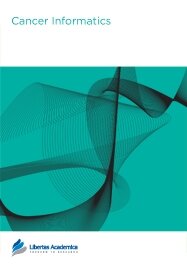

Publication Date: 04 Aug 2013
Type: Original Research
Journal: Cancer Informatics
Citation: Cancer Informatics 2013:12 143-153
doi: 10.4137/CIN.S10212

Background: Microarray techniques provide promising tools for cancer diagnosis using gene expression profiles. However, molecular diagnosis based on high-throughput platforms presents great challenges due to the overwhelming number of variables versus the small sample size and the complex nature of multi-type tumors. Support vector machines (SVMs) have shown superior performance in cancer classification due to their ability to handle high dimensional low sample size data. The multi-class SVM algorithm of Crammer and Singer provides a natural framework for multi-class learning. Despite its effective performance, the procedure utilizes all variables without selection. In this paper, we propose to improve the procedure by imposing shrinkage penalties in learning to enforce solution sparsity.
Results: The original multi-class SVM of Crammer and Singer is effective for multi-class classification but does not conduct variable selection. We improved the method by introducing soft-thresholding type penalties to incorporate variable selection into multi-class classification for high dimensional data. The new methods were applied to simulated data and two cancer gene expression data sets. The results demonstrate that the new methods can select a small number of genes for building accurate multi-class classification rules. Furthermore, the important genes selected by the methods overlap significantly, suggesting general agreement among different variable selection schemes.
Conclusions: High accuracy and sparsity make the new methods attractive for cancer diagnostics with gene expression data and defining targets of therapeutic intervention.
Availability: The source MATLAB code are available from http://math.arizona.edu/~hzhang/software.html.
PDF (768.33 KB PDF FORMAT)
RIS citation (ENDNOTE, REFERENCE MANAGER, PROCITE, REFWORKS)
BibTex citation (BIBDESK, LATEX)
XML
PMC HTML
MATLAB source code

Cancer Informatics has become an increasingly important source for research in the methodology of cancer genomics and the novel use of informatics technology. I have been impressed by the journal's contents and have been very gratified by the number of accesses to my recent publication. Cancer Informatics has filled an important gap in cancer research journals.

All authors are surveyed after their articles are published. Authors are asked to rate their experience in a variety of areas, and their responses help us to monitor our performance. Presented here are their responses in some key areas. No 'poor' or 'very poor' responses were received; these are represented in the 'other' category.See Our Results
Copyright © 2014 Libertas Academica Ltd (except open access articles and accompanying metadata and supplementary files.)
Facebook Google+ Twitter
Pinterest Tumblr YouTube